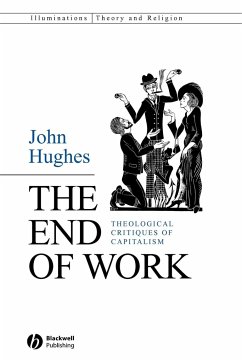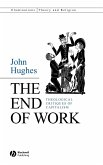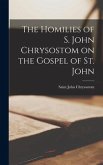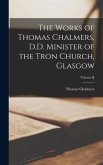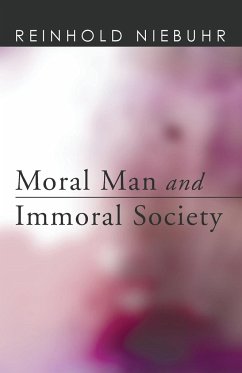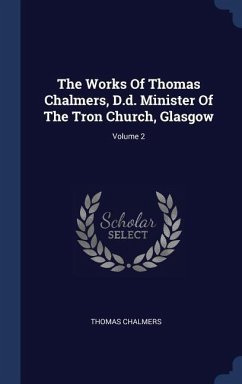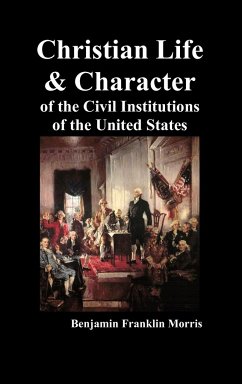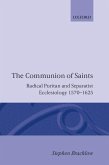The End of Work explores the "problem of labor" from a theological perspective. Addressing both theologians concerned with how Christianity might engage in social criticism, as well as secular philosophers and political theorists, this book explores the connection between Marxist and Radical Christian Romantic traditions. Surveying twentieth-century theologies of work and contrasting various approaches to the topic, this book looks at the relationship between divine and human work, explores debates about labour under capitalism, and, through a thorough reading of Weber's Protestant Work Ethic, argues that the triumph of the "spirit of utility" is crucial to understanding modern notions of work. Nineteenth- and twentieth-century Romantic and Catholic writers are then drawn upon to resist this with an alternative theo-aesthetic vision of the redemption of work as ultimately liturgical.
Hinweis: Dieser Artikel kann nur an eine deutsche Lieferadresse ausgeliefert werden.
Hinweis: Dieser Artikel kann nur an eine deutsche Lieferadresse ausgeliefert werden.
"These two excellent books provide thematic indices of Christianways of understanding both power and work. They also illustrate howprofoundly the repertoire of Christianity and of its Judaic originspermeates contemporary society in spite of the impossibleprescriptions and false descriptions that declare religion confinedto the private realm." (Times Literary Supplement, 29 July 2011)
"Adam was expelled from the garden of Eden to till the ground inthe sweat of his face, so the bible says, leaving us with centuriesof theological argument about how to relate the reality for so manypeople of work as toil, drudgery and effectively a curse, to theequally familiar experience of work as creative achievement andpersonal fulfilment. Post-Christian we may now be in Britain, yetin a society still reeling from de-industrialization, withunemployment endemic in certain quarters, with leisure activitiesexpanding vastly, and so on, there is a rich and complex Christiantradition of thinking about the nature of work which John Hughesputs back on the agenda in this provocative book." Fergus Kerr,University of Oxford
"John Hughes has written not about work but about the 'end' ofwork. But this is the most far-reaching question imaginable inpractical reason. To what end do we exert ourselves at all? What dowe hope to achieve? Through a tour of reading in nineteenth andtwentieth century thinkers that is as subtle and sympathetic as itis diverse and adventurous he has shown us how the ancient strugglebetween the fine and the useful has been played out dramatically inthe post-industrial West, and holds the key to a great deal that wethink of as modernity. Here is an exciting new voice contributingto the interpretation of our moral predicaments. I cannot imagineanyone putting Hughes' book down without having learnedsomething important." Oliver O'Donovan, University ofEdinburgh
"Its strength lies in its illuminating discussions of a fairlywide range of writers."
Times Higher Education Supplement
"Adam was expelled from the garden of Eden to till the ground inthe sweat of his face, so the bible says, leaving us with centuriesof theological argument about how to relate the reality for so manypeople of work as toil, drudgery and effectively a curse, to theequally familiar experience of work as creative achievement andpersonal fulfilment. Post-Christian we may now be in Britain, yetin a society still reeling from de-industrialization, withunemployment endemic in certain quarters, with leisure activitiesexpanding vastly, and so on, there is a rich and complex Christiantradition of thinking about the nature of work which John Hughesputs back on the agenda in this provocative book." Fergus Kerr,University of Oxford
"John Hughes has written not about work but about the 'end' ofwork. But this is the most far-reaching question imaginable inpractical reason. To what end do we exert ourselves at all? What dowe hope to achieve? Through a tour of reading in nineteenth andtwentieth century thinkers that is as subtle and sympathetic as itis diverse and adventurous he has shown us how the ancient strugglebetween the fine and the useful has been played out dramatically inthe post-industrial West, and holds the key to a great deal that wethink of as modernity. Here is an exciting new voice contributingto the interpretation of our moral predicaments. I cannot imagineanyone putting Hughes' book down without having learnedsomething important." Oliver O'Donovan, University ofEdinburgh
"Its strength lies in its illuminating discussions of a fairlywide range of writers."
Times Higher Education Supplement

